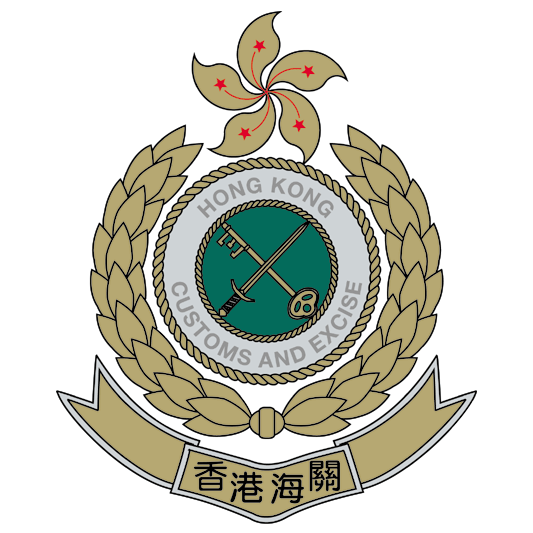|
|
 |
|
Under
the Enhanced Productivity Programme (EPP), Customs and Excise Department
is required to deliver a saving of $91.5 million over three years from
2000-01 to 2002-03, equivalent to 5% of its baseline operating expenditure.
As the bulk of the Department's operating expenditure is on personal
emoluments, the savings will inevitably have to come mostly from the
deletion of posts. In the three EPP years, we plan to delete 287 posts
to yield a saving of $79.9 million in salary payment and reduce the
expenditure on personnel related allowances and departmental expenses
by $2.9 million and $8.7 million respectively to achieve the saving
target. Of the
287 posts that we plan to delete over the three EPP years, we expect
half of them (146) to come from the implementation of an "Open
Bond System" in 2002-03 which aims to remove the requirement for
Customs attendance at bonded warehouses for dutiable goods. At present,
dutiable goods including liquor, tobacco and tobacco products imported
into or manufactured in Hong Kong are required to be stored in bonded
warehouses licensed under the Dutiable Commodities Ordinance (Cap. 109)
until duty is paid or duty liability is acquitted (such as on export
or being entered for concessional use). The warehouses are controlled
under a closed bond environment in which Customs attendance is required
to supervise the physical movements of the dutiable goods, vanning and
devanning and all operations-in-bond such as sampling, blending, bottling,
denaturing, remarking, repacking and destruction, to protect Government
revenue. Under the
Open Bond System, Customs attendance at the warehouses will be removed.
Instead, warehouse operators will be held responsible for ensuring the
safekeeping and accurate reporting of the dutiable goods in the warehouses
through a regime of self-regulation. We shall monitor and control compliance
through alternative strategies such as the application of strict licensing
criteria and operating conditions and through compliance activities
such as documentary verification, random checking and post-transaction
auditing. These arrangements will provide sufficient safeguards against
the loss of Government revenue. We have
launched a pilot scheme since January 2001 to try out the System for
six months with five randomly selected warehouses, with a view to gathering
useful information and experience to facilitate our consideration on
and preparation for the full implementation of the System. Should the
outcome of the pilot scheme suggest that an open bond system is feasible
and will not give rise to a higher risk of revenue loss, we aim to implement
the system in June 2002, after taking into account the time needed to
complete the necessary legislative amendments. Following
the implementation of the Open Bond System, we shall be able to save
146 posts with a saving of $36 million. This is a typical example to
illustrate that if we care to review and change the way that we do our
business, there are always benefits to gain. We do not
intend to give a detailed account here on the specific measures taken
to deliver the other 141 posts as they can be found in our EPP reports.
Instead, we
would like to share with you the method we used to identify these posts. To start
the process, we held meetings with the Heads of our Major Formations
in mid 1999 to provide them with a clear understanding of the EPP and
invited them to work out their manpower saving proposals. We have determined
right from the beginning that we should allow full participation of
our Heads of Major Formations in designing their respective plans because
we believed that as they were the ones who managed their day-to-day
business they should be in the best position to identify the areas where
there were scope for manpower savings. At the Headquarters level, we
only set down the target savings in each of the three EPP years and
the two basic principles for them to follow, which are - .there
should be no downgrading of the level and quality of our services; and .no
staff redundancy should arise as a result of the implementation of the
proposals. The approach
we adopted encouraged the Heads of our Major Formations to critically
examine their work processes and procedures, work priorities, organization
structure, manpower deployment, etc. As a result, they were able to
come up with a great variety of manpower saving proposals through different
ways to enhance productivity. As these proposals were worked out by
the Major Formations having regard to their specific situations and
operational needs rather than being imposed on them, we see such a strong
sense of ownership of these proposals that we are confident of their
smooth implementation. Apart from
involving all our Major Formations in devising the EPP plan, we also
attach great importance to consultation with our staff as the success
of the plan depends very much on the support of a committed workforce.
In this respect, we have held regular consultation sessions with our
staff through the Departmental Consultative Committee and meetings with
our staff associations to explain our EPP plan to them and to address
their concerns. We have also publicized our EPP plan in our departmental
newsletter for general information. We shall continue to consult our
staff on future changes to the EPP plan, if any, and keep them abreast
of the progress of the implementation of the plan.
Customs and Excise Department
|
|
